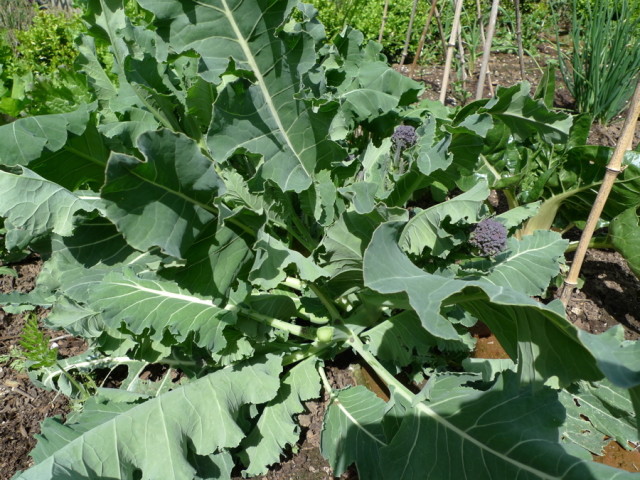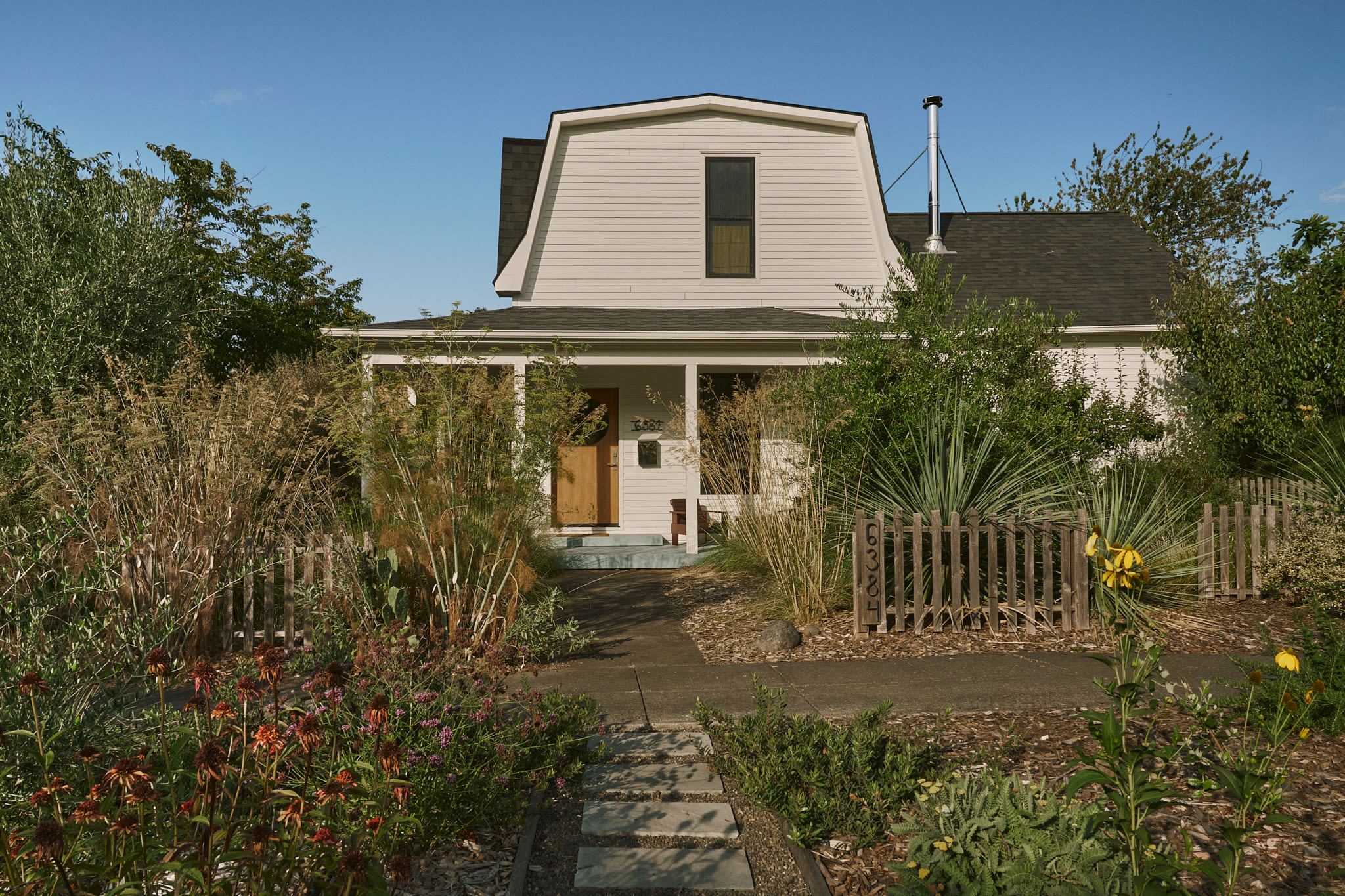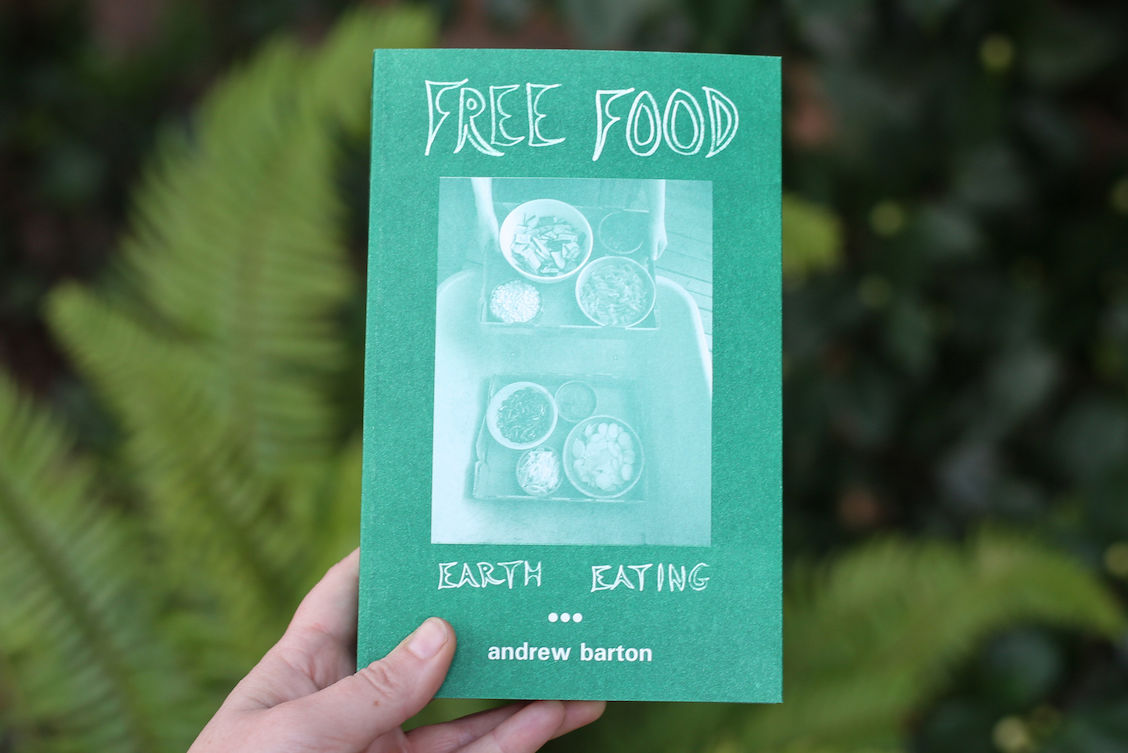Purple-Sprouting Broccoli

There are a few florets left on this plant – I’ve eaten most of it already!
So did you see the segment on mâche on KPTV the other day? ‘Cause I sure didn’t. Maybe they axed the piece or will air it another day.
In any case, my vegetable garden’s fabulous tv debut is on hold. And I was so excited about showing off my mâche on tv! The mâche is finished now (it’s bolting, along with the mustard, arugula and kale) but there’s plenty more that’s looking great, including one of my all-time favorite winter vegetables: purple-sprouting broccoli.
This vegetable is indeed slow – you sow the seed in July, grow it to a decent size in the garden, and then cold weather sets in and it just sits and endures. Come spring, it kicks into action again and in March and April, it forms large, leafy plants that produce an abundance of gorgeous little purple florets.
Purple-sprouting broccoli is one of the most delicious of all cruciferous vegetables, with an intense, rich, nutty broccoli flavor. Of course it’s incredibly nutritious ‘cause it’s a crucifer. It’s delicious with pasta (turns green when cooked), in baked dishes, and eaten fresh in salads or just snapped off the stalk in the garden. The florets are bite-sized so they are beautiful as they are – you don’t have to mangle their lovely form with a knife.
It’s a time investment – nine months’ worth of valuable real estate in the garden, from August, when you set the seedlings out in the garden to April – but it’s worth it. And it takes care of itself all winter – it’s cold hardy to below 10F.
As a side-note: I used ten year-old seed purple sprouting broccoli seed last year. The germination rate was fine and the plants grew beautifully. The Rudolf broccoli germination rate wasn’t as good, though that could have been a storage issue.
So mark your calendar for mid- to late July – that’s when to start the seed. Or just wait til I remind you. ’Cause I will. (Here is what I wrote about it last July.)
Buy purple-sprouting broccoli – or any overwintering vegetables – from local sources, as they are more likely to be cold-hardy strains. Try Victory Seeds, Territorial Seeds.




